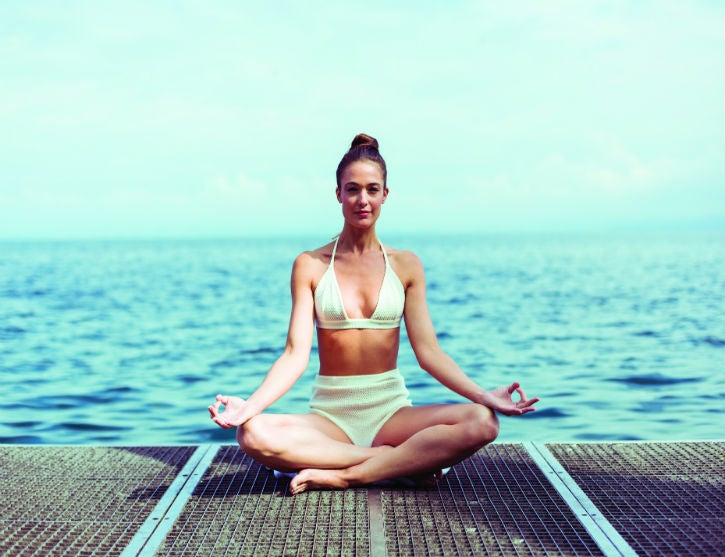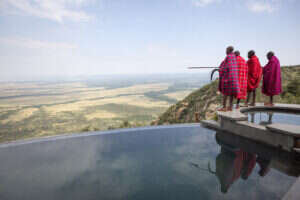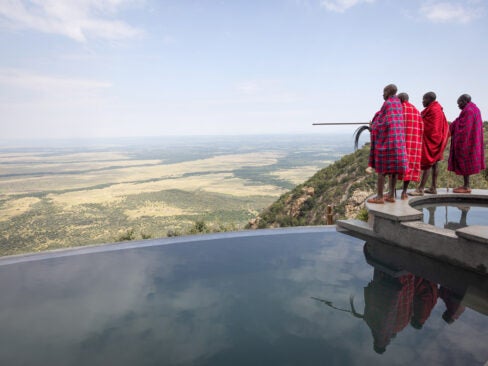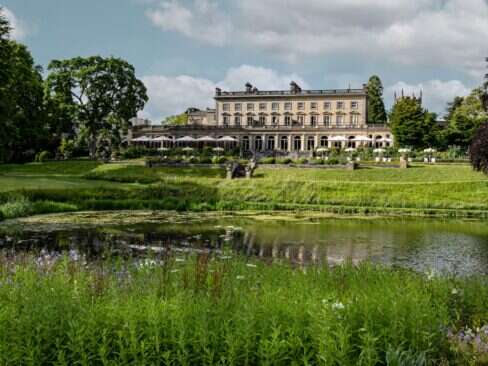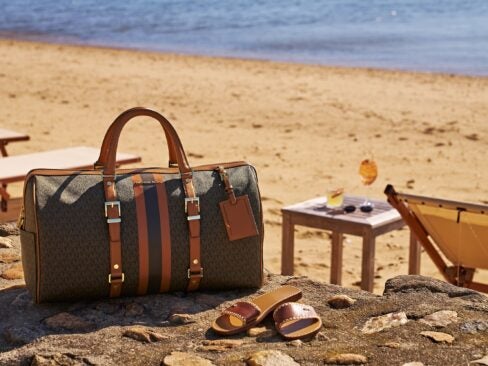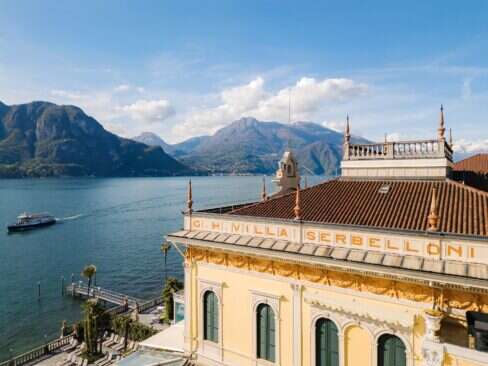By Jo Foley
This story originally appeared in the Hotels, Resorts and Spas issue of Elite Traveler.
Water helps us work, rest and play. And that’s before we even consider its benefits to out well-being.
Water is essential to life. We need it to live. Our bodies are 60 percent water, even though we lose 6–10 percent each day – you could lose up to 12 pints running a marathon – hence the need to keep replenishing our supply. Dehydration can cause headaches, lack of energy and loss of concentration, so the old adage about drinking plenty of water should be kept in mind.

Les Thermes Evian
Water is literally the stuff of life; we cook in it and clean in it, we cannot grow food without it or, indeed, generate electricity. The National Geographic Water Footprint Calculator estimates that 2,000 gallons of water per person per day are necessary to support the average American lifestyle.
We look to water for other things, too. We play in it – swimming, surfing, fishing et al; we relax in it – how soothing is a warm bath or how invigorating a cool shower; we exercise in it – from aqua aerobics to water polo, sailing to scuba diving. Then there is health and well-being. We take ourselves off to spas for rest and relaxation, to de-stress and chill, and to heal our tired bodies and overworked minds. The very word “spa” relates to this healing, with one theory suggesting it derives from an acronym for the Latin salus per aquam, or health through water.

Aquabike session at Les Thermes Evian
All over the world, nature provides healing waters from natural mineral rich springs gushing from the ground – from Calistoga in California through the Rockies to Banff in Canada, or south, to Brazil and a city named for a hot spring; Caldas Novas. Head for the Caribbean, where you can bathe in the sulfurous springs in St Lucia’s drive-in volcano, or head for the midnight sun and Iceland’s Blue Lagoon, where recovery from a long-haul flight is guaranteed after 30 minutes of bathing in its bright-blue warmth.
The onsen (hot spring) is central to Japanese culture and available throughout the country, either in luxury ryokan resorts or in public baths. The different minerals in the springs are said to bring different health benefits… but all onsens have a soothing and relaxing effect on both mind and body.

Evian Resort Golf Club
Europe has myriad mineral-rich springs. Over the centuries, these gave rise to the elegant spa towns of Germany, France and Italy, places where the rich, the royal and the overindulged went to seek a cure and a break from their opulent lifestyles. Gradually, it was discovered that certain minerals were good for respiratory diseases, while others helped with joint and muscular disorders. Alongside such treatments, other more pampering and beautifying therapies were introduced, such as underwater massage, hydrotherapy baths, Vichy showers (combining water with manipulation), through to watsu (underwater shiatsu), mud wraps and salt scrubs. Water treatments gave rise to a whole new meaning in spa therapies.
But it was French doctors in the mid-19th century who researched the health benefits of seawater and, after the first international congress of seabathing and water therapy held in Boulogne-sur-Mer, offered the world thalassotherapy, a whole new menu of treatments incorporating not just seawater but algae, seaweed, sea minerals and mud.
By their very nature, thalassotherapy spas and clinics are always on the coast, since they use unpolluted seawater pumped directly from the sea. The water is collected from a depth of up to 121 ft to ensure maximum purity without surface pollution. This, in turn, results in the highest concentration of mineral salts, algae, marine mud and iodine. It is particularly effective in dealing with muscle and joint problems, because the water is of a similar density to human plasma and has many of the same components, facilitating absorption through the skin. The water has minute amounts of magnesium, potassium, calcium, sodium and iodine, as well as more than 50 other elements believed to help boost the blood and lymph circulation.
Because weight displacement in water allows for stronger massages and manipulation, thalasso and other hydrotherapy treatments are often used in the rehabilitation programs of injured athletes and sportsmen. They are also increasingly popular with racehorse trainers and owners to help repair strained and damaged ligaments and muscles.
The Best Spa for You
Traditionalists should head for Biarritz and the Sofitel Biarritz le Miramar Thalassa Sea & Spa, a grand belle époque palace with the best location in town, facing the Atlantic. Choose from an extensive menu of therapies and programs. The brave should try Le Grande Douche, where the body is massaged with a powerful hose from 9 ft away. Invigorating! Sybarites can opt for the warmth of balneotherapy, in which 180 tiny jets massage every part of your body while you lie in a warm bath. sofitel.com
Purists wishing to absorb the traditional elements of Japanese culture may wish to travel to Kyoto in time for the cherry-blossom season and, while there, stay at Sumiya Ryokan. Built in the style of a tea-ceremony house, this haven of peace and quiet in the heart of the city offers all the time-honored traditions of Japan, including the onsen. sumiya.ne.jp

The pool at Hotel Royal, Evian
Culture vultures may long for the glories of Florence, so Italy becomes the natural place to enjoy the healing benefits of water. A short drive from Florence, in the Tuscan spa town of Monsummano Terme, Grotta Giusti offers elegant respite from the rigors of sightseeing. It is a glorious 19th-century villa in beautiful parkland, with its own 130-million-year-old thermal cave. This is an absolute treasure trove of healing brought about by the slow dripping of the water that has eroded the rocks over the millennia, creating a cave. Guests can wander around the cave, enjoying the heat and steam, before taking a warm shower or thermal bath to revive tired bodies and regenerate the spirit. grottagiustispa.com
Golfers might opt for Evian, home of the ubiquitous water and now to one of the top five ladies’ championships in the world, plus a host of competitions. Here you can not only drink the stuff but also be bathed, massaged and pummeled in it at the Hotel Royal, which comes complete with its own cable train service to transport guests to the main thermal spa in the town for more underwater massage and scrubs. hotel-royal-evian.com





